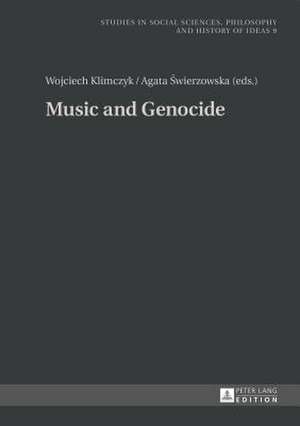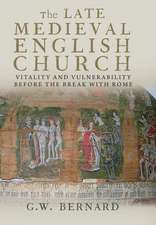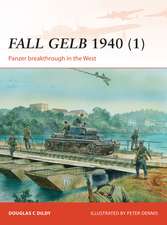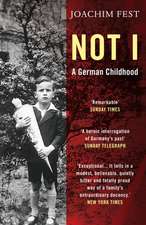Music and Genocide: Studies in Social Sciences, Philosophy and History of Ideas, cartea 9
Editat de Wojciech Klimczyk, Agata Swierzowskaen Limba Engleză Hardback – 26 mar 2015
Din seria Studies in Social Sciences, Philosophy and History of Ideas
-
 Preț: 357.04 lei
Preț: 357.04 lei - 23%
 Preț: 484.70 lei
Preț: 484.70 lei - 23%
 Preț: 434.25 lei
Preț: 434.25 lei - 23%
 Preț: 480.09 lei
Preț: 480.09 lei - 23%
 Preț: 440.33 lei
Preț: 440.33 lei -
 Preț: 517.91 lei
Preț: 517.91 lei -
 Preț: 515.04 lei
Preț: 515.04 lei - 8%
 Preț: 397.20 lei
Preț: 397.20 lei -
 Preț: 288.02 lei
Preț: 288.02 lei -
 Preț: 405.79 lei
Preț: 405.79 lei - 23%
 Preț: 530.52 lei
Preț: 530.52 lei - 23%
 Preț: 624.44 lei
Preț: 624.44 lei -
 Preț: 493.33 lei
Preț: 493.33 lei -
 Preț: 460.73 lei
Preț: 460.73 lei - 23%
 Preț: 526.25 lei
Preț: 526.25 lei -
 Preț: 460.73 lei
Preț: 460.73 lei - 23%
 Preț: 479.04 lei
Preț: 479.04 lei
Preț: 466.31 lei
Preț vechi: 605.59 lei
-23% Nou
Puncte Express: 699
Preț estimativ în valută:
89.23€ • 95.42$ • 74.40£
89.23€ • 95.42$ • 74.40£
Carte tipărită la comandă
Livrare economică 18 aprilie-02 mai
Preluare comenzi: 021 569.72.76
Specificații
ISBN-13: 9783631660034
ISBN-10: 3631660030
Pagini: 242
Ilustrații: 5 Notenbeispiele enthalten
Dimensiuni: 148 x 216 x 20 mm
Greutate: 0.45 kg
Editura: Peter Lang Gmbh, Internationaler Verlag Der W
Seria Studies in Social Sciences, Philosophy and History of Ideas
ISBN-10: 3631660030
Pagini: 242
Ilustrații: 5 Notenbeispiele enthalten
Dimensiuni: 148 x 216 x 20 mm
Greutate: 0.45 kg
Editura: Peter Lang Gmbh, Internationaler Verlag Der W
Seria Studies in Social Sciences, Philosophy and History of Ideas
Notă biografică
Wojciech Klimczyk (PhD) and Agata Swierzowska (PhD) are university lecturers at the Centre for Comparative Studies of Civilisations (CCSC) at the Jagiellonian University in Krakow (Poland). Since its foundation in 1996, the Centre for Comparative Studies of Civilizations (CCSC) has forged a distinct identity and earned a solid reputation as an interdisciplinary research and academic department unparalleled in Central Europe.
Cuprins
Contents: M. J. Grant/Mareike Jacobs/Rebecca Möllemann/Simone Christine Münz/Cornelia Nuxoll: Music, the «Third Reich», and «The 8 Stages of Genocide» - Arman Goharinasab/Azadeh Latifkar Geok Tepe Mugam: A Musical Narrative of Turkmen Massacre in 1881 - Katarzyna Naliwajek- Mazurek: The Functions of Music within the Nazi System of Genocide in Occupied Poland - Joanna Posluszna/Lukasz Posluszny: The Aural Landscape of Majdanek - Kirsten Dyck: White-Power Music and the Memory of the Holocaust - Leszek Sosnowski: The Holocaust - the Code of Death without the Alphabet of Life - Ralph Buchenhorst: «...as if the shame before the victims would be offended» - Adorno's Verdict on Arnold Schoenberg's A Survivor from Warsaw - Matt Lawson: Towards a Critical Understanding of Representational and Semantic Issues within Hanns Eisler's Score for Nuit et Brouillard (1955) - Joanna Posluszna: «We remember»: The Trauma of the Holocaust in Krzysztof Penderecki's Work - Wojciech Klimczyk: Impossible Music? On Genocide as Silence (Rwanda, Auschwitz and Beyond) - Lawrence Kramer: Afterword: Genocide, Music, and the Name.












